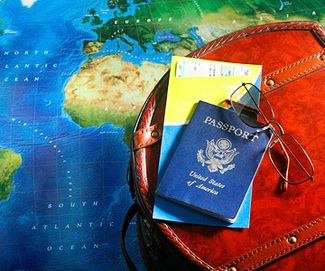Being an Expat: The Rewards
Medical Pharmaceutical Translations • Apr 24, 2017 12:00:00 AM

Reasons for becoming an expat or expatriate, a person temporarily or permanently residing in a country other than that of their birth, are as varied as the people who call themselves expats. For many, the reason is financial benefits and most are required to relocate because of their jobs. Some become expats for adventure, some to explore new places, some move to follow their spouse’s job, some for the love of a person, some for love of another culture. Others just simply want milder winters. Whatever the reason, if you are fortunate enough to be offered an expat contract through your employer, it is a chance to live immersed in another country for a few years, an experience that is bound to change you and help you grow in many ways. The benefits are numerous and priceless.
Show Me the Money
Demand for talented people who are willing to live and work abroad is high— even after they return home. Expats return with new perspectives, greater knowledge, and a better ability to work and collaborate with different languages and cultures. In fact, the U.S. Committee on Economic Development states, “80 percent of U.S. executives believe their companies would operate better if more internationally cultured employees were present.” 71 percent of executives at American companies feel that an international assignment is essential for employees who desire a leadership position at an American multinational. If an American company decides to market internationally, expats are the best employees for the job.
Companies who want expats, are willing to pay them well. On average, expats get paid approximately 40 percent more than non-expats in the same positions. For example, a middle manager can make over $250,000 as an expat in China. What’s more, that same manager is not taxed by the US on the first $90,000 they make. Being bilingual can also increase your pay anywhere from 2 to 15 percent more depending on the language(s) you speak and your fluency.
Make it Personally Rewarding
Besides getting paid well, there are myriad other rewards for living in another country. The expat lifestyle is something to be treasured in and of itself. Many expats travel extensively when they live where countries are closer and more affordable. Some run with bulls in Spain, hike Kilimanjaro, see lions on safari, explore ancient ruins, and make life-long friends. Going global will expand your mind and horizons and make you a global citizen.
It’s not all wine and roses and safaris
Of course, working abroad is not all about travel. There is work to be done after all. The transition is not always easy, especially if the culture is extremely different from your native country. Some expats have trouble adjusting. In fact, Rosetta Stone reports that 75 percent of all expat relocations end in failure. Why? They go in unprepared. The language barrier, cultural differences, and the family’s inability to adjust causes too much stress and this can lead to expats departing.
Life abroad takes some getting used to. When are stores open? How does the healthcare system work? Where can I get a haircut? How does public transportation work? Trying to leave the airport is difficult if you don’t know the word for “exit.” Working in a cross-cultural office space is difficult. It requires cultural competency and effective communication. It takes time to learn how one culture does everything from a business meeting to a presentation.
The Happy Expat
Most expats have similar advice to ensure a successful expat experience. The most important thing to remember is to stay curious throughout your time abroad. This will make your experiences richer, memories more vivid.
The cultural nuances and language may both mystify and frustrate, but also enrich your life. Being well prepared before taking on your overseas endeavor is key. Perhaps knowing your way around your new city will help. Find where the main streets are and how to use mass transit.
Taking cross-cultural training classes help, especially if the culture differs greatly from yours. Relocation preparation training which includes the whole family is also important.
Learning the language is another way. Not being afraid to be sociable once you are immersed in another culture will help you learn. Practice the language and be sure to make friends with more than just other expats. Socializing with locals is imperative to enjoying the local culture. Using the language enables you to participate in more activities, helps you to feel and act more confidently and allows you to express your own opinions. In other words, it will make you a happier expat in the end.
Being open to the challenges will help open a world of opportunity for you as you travel your expat journey. You will gain knowledge of other customs and countries, yes, but you will also define your own story and expand your life. Expats become better versions of themselves when they return to their native lands with unforgettable experiences that last a lifetime.
Ilona Knudson
#translations #expat #rewardsofbeinganexpat #aiatranslations #expatriate
